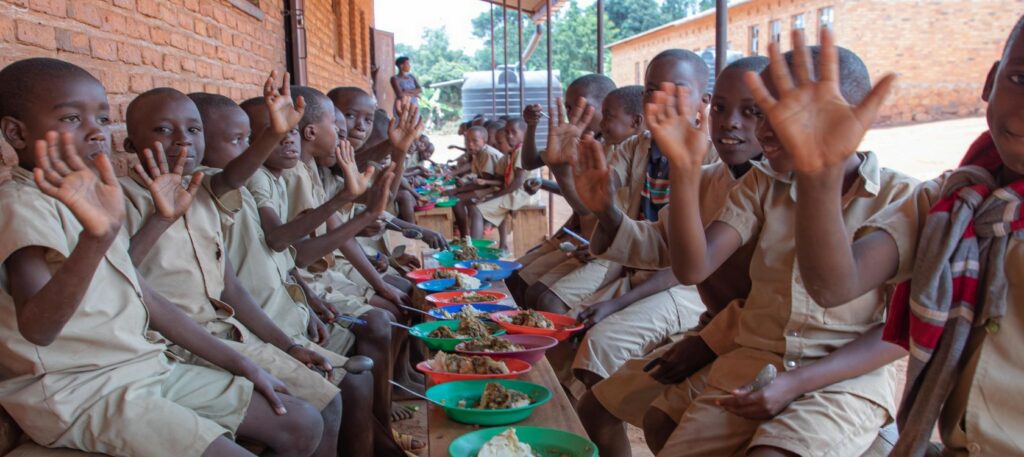With about 10% of Burundi’s children dropping out of school each year, Burundi faces a significant challenge of significant proportions. Children and youths leave school for a variety of reasons, including shortages of classrooms, teachers, and basic educational resources, as well as the ramifications of poverty and the pressures of child labor.
Without good quality canteens, many children lack nutritious meals, and as a result have problems concentrating, studying and performing to their potential. Some give up, and leave school altogether.
In response to this pressing problem, AFD, in collaboration with the Global Partnership for Education, is funding the ambitious Twige Neza project, which aims to enhance the reception and quality of education for Burundian students.
Further reading : Sports, Education and Training together in Togo
At least one nutritious meal a day
One key component of Twige Neza is the establishment of school canteens as a strategy to prevent dropouts.
These school canteens are designed to provide children with at least one nutritious meal per day. “The food I receive here at school is often my only meal for the day,” says Séraphine Nikuze, a student in Gitega province in central Burundi.
Implemented by the UN World Food Programme (WFP), the project has set a goal to distribute more than 17 million meals to 50,000 children over three years.
“Before the canteen was introduced at school, I had to spend an hour and a half walking home to eat lunch, and then return to school,” says Florence, another student from Gitega province. “I was constantly fatigued, and this adversely affected my academic performance. However, since the program was implemented, I can now enjoy meals at school, providing me with more time to focus on my studies. As a result, I perform well in class quizzes because I have ample time for revision.”
Fresh and local products
To support increased food production and stimulate the local economy, the project has formed partnerships with 3,500 local farmers who supply the canteens with fresh, locally sourced produce. This approach benefits small-scale farms, often run by women, while ensuring that schoolchildren receive nutritious and healthy meals.
Further reading : Prioritizing Burundi’s Health Sector
Strengthening the education system
School feeding is just one facet of the broader Twige Neza project, which seeks to strengthen the entire education system. This comprehensive initiative aims to enhance the reception and quality of education for Burundian pupils, including the construction and renovation of 461 classrooms. It also seeks to consolidate the achievements of the basic education reform and promote equitable development within the sector. The project is supported by a $46.9 million grant from the Global Partnership for Education, managed by AFD, as well as a €4 million grant from AFD.
Twige Neza’s commitment to school feeding aligns with a larger national school canteen program implemented by the WFP in conjunction with the Burundian government. Through this program, the Government of Burundi aims to achieve universal school meal coverage by the year 2032.
Source link : https://www.afd.fr/en/actualites/burundi-canteens-prevent-school-dropouts
Author :
Publish date : 2023-09-07 03:00:00
Copyright for syndicated content belongs to the linked Source.
